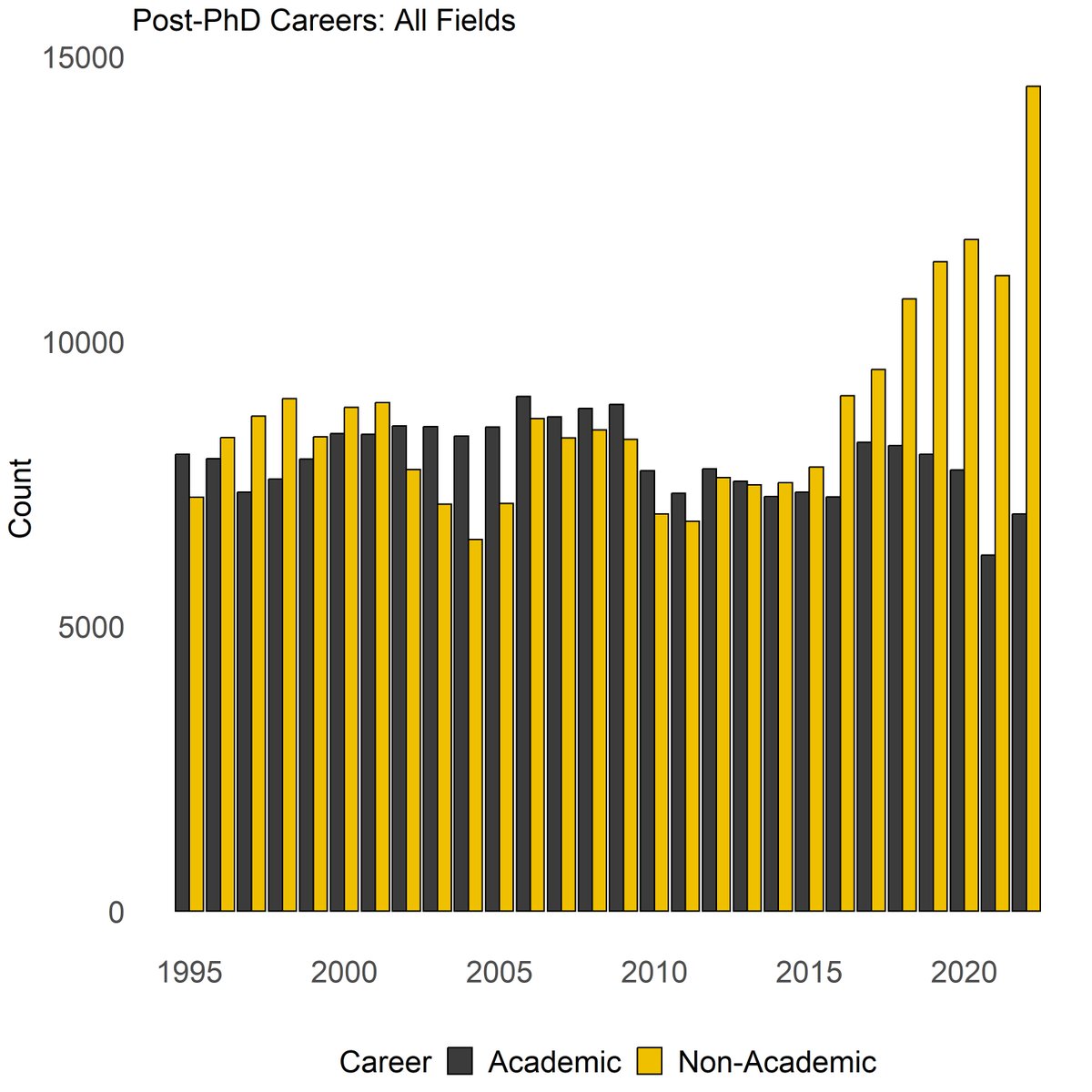When I was applying for UX jobs, I actually didn't get many interviews. Now that I am in UX, I understand why this happened:
It wasn't that I lacked the skills. I just didn't really understand what companies wanted.
Here's how you can avoid my mistakes: #AltAcChats 1/
It wasn't that I lacked the skills. I just didn't really understand what companies wanted.
Here's how you can avoid my mistakes: #AltAcChats 1/
1. Conduct informational interviews
Talk to UX Researchers (bonus points if they have the same phd as you). What UX skills do you currently have? What UX skills are you missing, and how can you develop these skills?
Answer these questions & you'll be ahead of the game. 2/
Talk to UX Researchers (bonus points if they have the same phd as you). What UX skills do you currently have? What UX skills are you missing, and how can you develop these skills?
Answer these questions & you'll be ahead of the game. 2/
2. Sell the skills that you have in a resume
My initial UX resume was just okay. I didn't highlight my qual research experience (interviews, observations), and I focused too much on stats & the topics of my academic research.
I likely appeared unqualified for most UX jobs. 3/
My initial UX resume was just okay. I didn't highlight my qual research experience (interviews, observations), and I focused too much on stats & the topics of my academic research.
I likely appeared unqualified for most UX jobs. 3/
3. Learn the skills that you're missing
Product design/development was the biggest UX skill that I was missing (& that you're probably missing too). But you can learn this skill from books, videos, & podcasts.
All UX skills are 100% learnable. Teach yourself! 4/
Product design/development was the biggest UX skill that I was missing (& that you're probably missing too). But you can learn this skill from books, videos, & podcasts.
All UX skills are 100% learnable. Teach yourself! 4/
4. Make a portfolio
I didn't make a portfolio when I was applying for jobs, which contributed to my low interview rate. A portfolio is a good place to showcase your qual research.
You could even design a prototype in @figma & run your own usability study with friends! 5/
I didn't make a portfolio when I was applying for jobs, which contributed to my low interview rate. A portfolio is a good place to showcase your qual research.
You could even design a prototype in @figma & run your own usability study with friends! 5/
5. Focus solely on UX
I applied to UX & non-UX jobs at the same time. But in a job search, you should focus on one job title. Design your website, LinkedIn, & resume for that one job title.
Companies didn't see me as a UX researcher, because I didn't market myself as one. 6/
I applied to UX & non-UX jobs at the same time. But in a job search, you should focus on one job title. Design your website, LinkedIn, & resume for that one job title.
Companies didn't see me as a UX researcher, because I didn't market myself as one. 6/
I feel very lucky. I did a lot of things wrong in my job search and still managed to break into UX.
Remember: the first job is the hardest to get! Things only get easier from there 💛
Remember: the first job is the hardest to get! Things only get easier from there 💛
• • •
Missing some Tweet in this thread? You can try to
force a refresh









